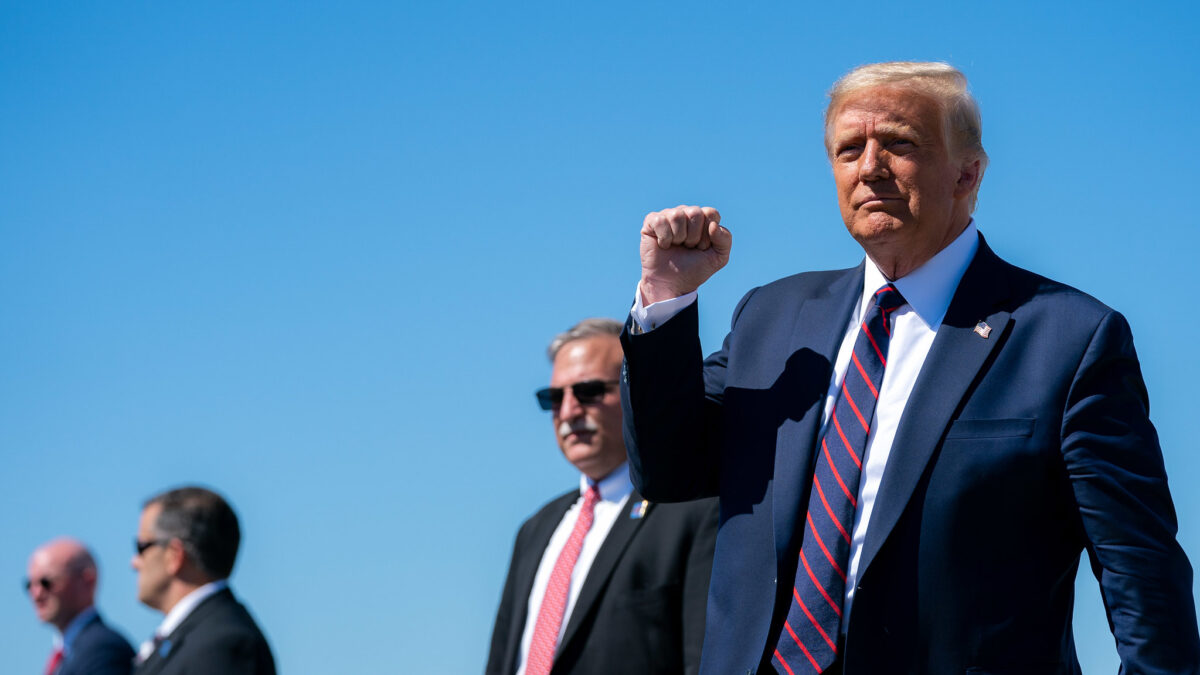“Jury in Georgia Trump Inquiry Recommended Multiple Indictments, Forewoman Says,” The New York Times blared with its midday breaking news headline on Tuesday. But it is what followed that revealed the real story: that the grand jury recommended bogus charges based on the Fulton County district attorney’s misrepresentation of evidence.
“We definitely started with the first phone call, the call to Secretary Raffensperger that was so publicized,” Emily Kohrs, the forewoman of the special purpose grand jury said, noting that prosecutors played the recording for jurors the first day. “I will tell you that if the judge releases the recommendations, it is not going to be some giant plot twist,” Kohrs continued. “You probably have a fair idea of what may be in there.”
Yes. Yes, we do: bunk.
Since Fulton County’s Democrat District Attorney Fani Willis first sought to impanel a “special purpose grand jury” — “special purpose” because it can only make recommendations and cannot indict — to assist in her investigation “into any coordinated attempts to unlawfully alter the outcome of the 2020 elections in this state,” she has misrepresented the substance of Donald Trump’s Jan. 2, 2021, telephone conversation with Georgia’s Secretary of State Brad Raffensperger.
Just as the Times did in its article yesterday, Willis falsely stated that during Trump’s conversation with Raffensperger, the then-president requested that “the Secretary ‘find 11,780 votes’ in the former President’s favor.”
But as I’ve been forced to detail time and again because the corrupt media continue to lie about the conversation, the transcript of the call established that Trump “did not request that Raffensperger ‘find 11,780 votes.’ Period. It never happened.” Rather, during that “telephone conversation between Trump’s legal team and the Secretary of State’s office, Trump’s lawyer explained to Raffensperger that ‘the court is not acting on our petition. They haven’t even assigned a judge.’”
And it was because the Fulton County judge responsible for assigning a judge to hear Trump’s election lawsuit — ironically, the same Judge Chris Brasher who authorized Willis’ special purpose grand jury — held up his legal challenge that Trump’s legal team reached out to Raffensperger, requesting the secretary of state’s office investigate the evidence of widespread violations of election law.
The transcript of Trump’s call with Raffensberger confirms this fact, with lawyers for the then-president ticking “off the numerous categories of illegal votes of which they had concrete evidence — some 25 categories.” Here, the DA appears to have pushed a second falsehood, with Willis reportedly asserting in a subpoena that during that call, Trump’s lawyer, Cleta Mitchell, “parroted claims of voter fraud.’”
Mitchell did no such thing. She was not pushing claims of voter fraud but instead wanted the secretary of state’s office to investigate violations of Georgia election law.
The grand jury, however, only knew the facts Willis decided to share with the group. The jurors, who came from all walks of life — including the 30-year-old unemployed forewoman — also needed to rely on the DA’s office to decipher the meaning of any criminal statutes.
And from Kohrs’ statements to the press, we know that the prosecutor’s office focused the grand jury’s attention on Trump’s telephone conversation with Raffensberger, opening the proceedings by playing a recording of the call. But the transcript of that call has been released and confirms both that Trump never asked Raffensberger to “find” him the votes and that his legal team asked the secretary of state’s office to investigate the evidence of illegal voting.
Yet the DA framed the case as one about fraud, with the grand jury writing in its report that it “heard extensive testimony on the subject of alleged election fraud from poll workers, investigators, technical experts, and State of Georgia employees and officials, as well as from persons still claiming that such fraud took place,” and concluding, “by a unanimous vote that no widespread fraud took place in the Georgia 2020 presidential election that could result in overturning that election.”
So the grand jury’s view “that perjury may have been committed by one or more witnesses testifying before it,” is meaningless. And that Kohrs said the special purpose grand jury recommended more charges, and that the list is not a short one, means nothing. Those conclusions flowed from the case Willis presented to the Fulton County jurors — a case built on deceptions about a telephone call.









